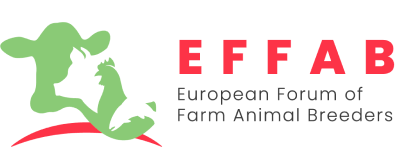Past projects
European Research projects are a core element in EFFAB, not only during their active lifetime but also after their closure. Here, you'll be able to check out the projects that EFFAB has taken part in.
- Read more
- Read more
- Read more
GENE-SWitCH
GENE-SWitCH aims to deliver new underpinning knowledge on the functional genomes of two main monogastric farm species (pig and chicken) and to enable immediate translation to the pig and poultry sectors.GENE-SWitCH will contribute to the global FAANG effort considerably, demonstrate how functional annotation of genomes can foster the advancement of genomic selection for immediate benefit to the breeding industry, and produce cutting-edge research paving the way to new studies and strategies for sustainable productions.
Roadmap
The ROADMAP project fosters transitions for prudent and responsible antimicrobial use (AMU) in livestock farming by favouring a rethinking of antimicrobial decision-systems all along the food supply chain. With an interdisciplinary framework, ROADMAP analyses the socio-economic drivers of AMU, develops tailored strategies for change and proposes transition and impact scenarios in diverse farm animal production systems in Europe and low- and middle-income countries. It will therefore contribute to the fight against antimicrobial resistance by allowing cross-learning from diverse successful experiences, encouraging a harmonization of AMU reduction trends across Europe and thus favouring a global decrease of AMU in animal production.
AQUA-FAANG
AQUA-FAANG aims to understand the link between the genetic code and traits of commercial importance of the 6 most farmed fish species (Turbot, European Seabass, Gilthead Seabream, Atlantic Salmon Rainbow Trout and the Common Carp) better. It supports finfish aquaculture’s ongoing growth and sustainability by generating high-quality maps of fish genomes to elucidate information on the expression of biological traits, improving our understanding of the basis for fish health and new tools and approaches to enhance disease resistance. A white paper will be written to highlight how the AQUA-FAANG datasets can advance aquaculture.
